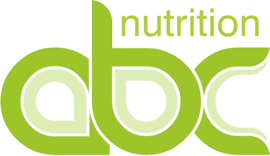Wellness bloggers - are they really nutrition 'experts' or just your average Joe blog?
With the internet being highly unregulated, you may well be turning to an average Joe Blog for nutrition advice rather than a qualified nutrition professional . So how do you spot the real experts amongst all the pseudo-science touting nutrition 'gurus'?
How can you tell if a blog is written by a REAL expert?
These days it seems as if anyone and everyone has their own view on nutrition - whether it be going Keto or sugar-free or cutting out gluten or carbs. Nutrition is the hottest topic on the block and advice about what to eat is now coming from all types of people - celebrities, TV chefs, personal trainers, health coaches and even Joe (or Joanna) Blog. Here are our 6 top tips to help you determine whether the blogger or influencer you are following, is a credible source of nutrition advice:
1. Success doesn't mean qualified
Don't be swayed by a bloggers perceived 'success' on social media, such as their number of followers, celebrity status or physical appearance. Just because someone is 'successful' online doesn't necessarily make someone qualified!
2. Do your homework
Before you go signing up to the next diet fad or spending loads of money on a magic bullet, it really pays to do your homework and to make sure you check all the credentials and qualifications behind those you are turning to.
3. Check the quality of the qualifications
It's not only the qualifications that are important but also the quality of those 'qualifications' - a 3 day online nutrition course from a unheard of 'university' is completely different to having completed a Master's or Post-Graduate degree from a reputable university.
4. Don't be swayed by testimonials
Dietary advice should be based on robust scientific evidence, rather than emotional testimonials or one-off biased studies. "What works for me" can be a powerful tool to sway individuals into pursuing a certain dietary lifestyle, and it can mean big business!
5. Are they trying to sell something?
Social media is BIG business these days and often influencers (ie those with the most followers across a specific demographic) will be approached by companies to promote their products, or the influencer might have their own products to sell to their social media following. As always, it pays to do your homework to determine whether a blog has been sponsored or if it is paid advertising. Most reputable bloggers will be upfront about their paid affiliations, such as by using #paid, #sponsored, #promo, #advert in their posts.
6. If it looks too good to be true, it probably is!
Remember it's not always truth you're reading or seeing depicted on your favourite bloggers page or on Instagram. It's often a very photoshopped and edited version of someone's life or in some cases, even a complete fraud.
What do all the nutrition terms and qualifications mean?
Dietitian
A dietitian is an expert in nutrition. They apply scientific knowledge about food and nutrition to individuals and groups to promote optimal health outcomes. A dietitian is qualified to provide treatment, education and support to people requiring nutrition information and advice relating to medical and surgical treatments and in the management of chronic diseases (such as diabetes and heart disease), as well as for general health.
To practise in New Zealand, by law a dietitian must be registered with the Dietitians Board and hold a current practising certificate, work within a specified scope of practice, participate in a continuing competency programme and adhere to a Code of Ethics. The educational prerequisites for registration are completion of a Masters Degree (previously a 18 month postgraduate diploma), with entry restricted to those who have successfully completed a relevant undergraduate science degree in Human Nutrition. Dietitians are also nutritionists, however nutritionists need to complete a Masters degree and be registered with the Dietitians Board to be dietitians.
At ABC Nutrition all our dietitians are registered with the Dietitians Board and hold a current Annual Practising Certificate. They are also all paid members of Dietitians New Zealand.
Registered Nutritionist
Just like 'dietitian', the term 'Registered Nutritionist' is a protected title. Registered Nutritionists must meet certain criteria set out by the Nutrition Society of New Zealand to ensure they have appropriate academic qualifications in nutrition and that they undertake continuing education.
Nutritionist
The term nutritionist is not a protected or regulated term. It can be used freely by anyone, as there is no specific qualification or legal registration process required. A 'nutritionist' may have a PHD in a specialty area of nutrition or equally be someone providing services with no formal nutrition training. It pays to do you research. Those who have qualifications behind them, will clearly state so somewhere on their website or blog.
Clinical (or Integrated) Nutritionist
While these terms are gaining quite a bit of momentum, just like 'nutritionist' neither of these terms are regulated or protected. Therefore, someone does not need to have any formal qualifications behind them in order to call themselves a Clinical or Integrated Nutritionist.
Health and Wellness Coach
Again, someone does not need to undertake any formal qualifications in order to call themselves and health and wellness coach. While some coaches may have completed a nutrition degree or course, the quality of these courses can sometimes be questionable.
At ABC Nutrition, we have done the homework for you and all our team are Registered Dietitians - meaning you can trust us when it comes to nutrition.




